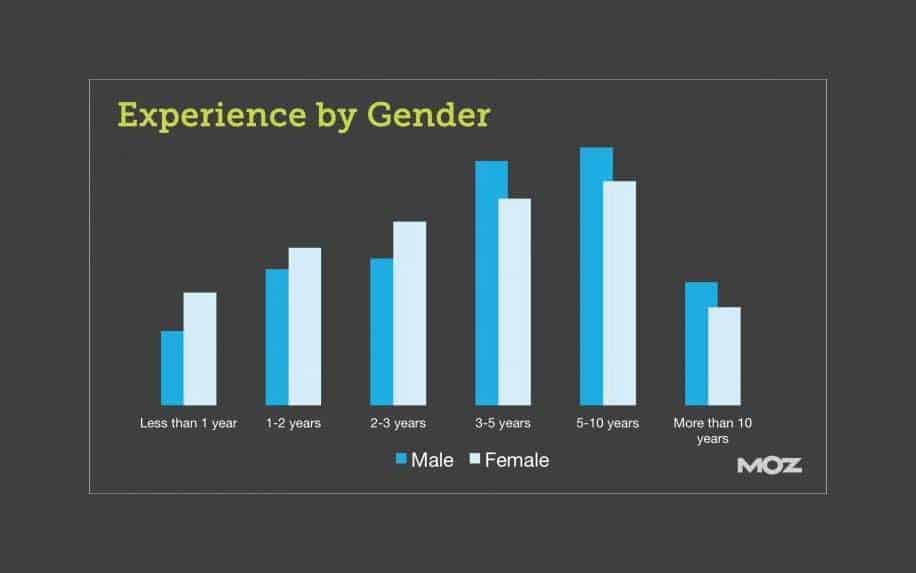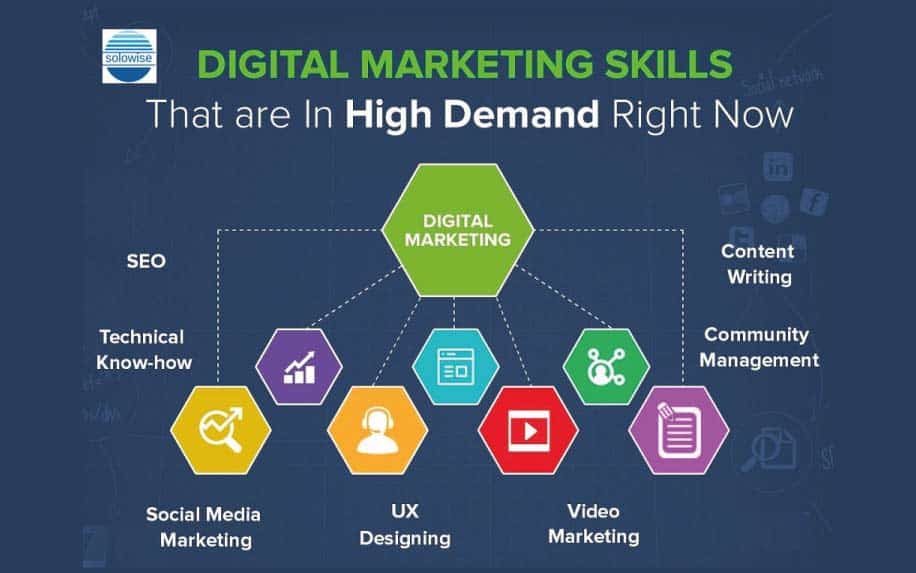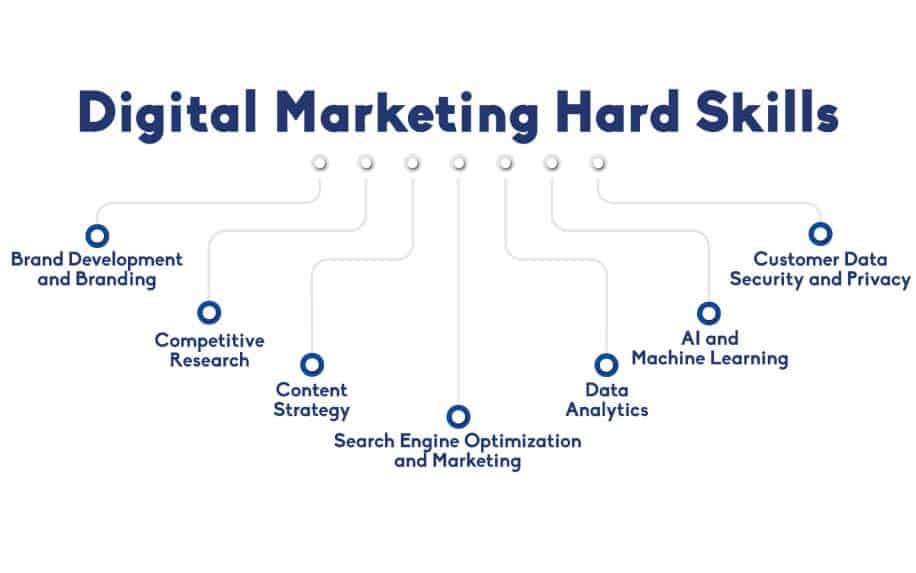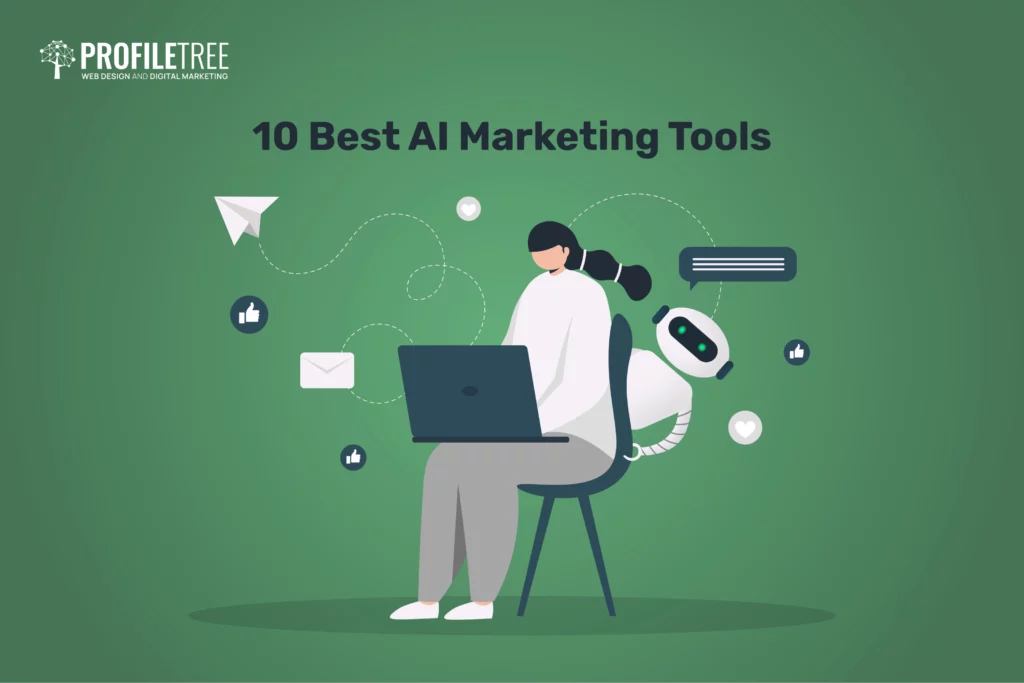Today, a career in marketing is a more popular option than ever. With rising salaries, a varied workload, and relatively low barriers to entry, many people are measuring up their marketing prospects nowadays.
‘How to get into marketing?’ is a question being asked more and more often thanks to the career choice gaining more and more popularity in recent years.
In today’s competitive market, identifying and nurturing potential customers, known as marketing prospects, is crucial for business success. This guide will delve into the essential aspects of prospect identification, nurturing strategies, and effective conversion methods to help you turn leads into loyal customers.
Why? This is due to the large demand for marketers and the incredible large varieties of marketing jobs to almost any kind of specialty.
Our essential guide to your marketing career starts here.

Table of Contents
What are Your Marketing Prospects?
Marketing is one of the most popular job fields today. Everyone who creates a product, runs a brick and mortar shop or creates content on the internet needs to care about marketing. A good marketing campaign plays an important role in any business’s success.
For this reason, many companies hire marketing professionals to manage their campaigns. The job market for marketing is a promising one. However, there’s a dark side of marketing prospects like any other field.
Improved online technologies are increasingly allowing new companies to compete with established major brands. This has led to an increase in demand for skilled marketers. As with any other role, more demand means higher salaries.
Even better, most marketers don’t come from an academic marketing background. In fact, many people who study subjects like history, politics and other humanities degrees eventually wind up as marketers.

This is because many of the key skills needed for marketing can be learned independently, making the barriers to entry incredibly low.
Different Types of Marketing Prospects:
In the world of marketing, identifying and nurturing potential customers is critical for success. However, it’s important to differentiate between various types of prospects based on their engagement level and position in the sales funnel. Here’s a breakdown of key terms:
Leads:
- Definition: Individuals who have shown some interest in your product or service but haven’t yet expressed a strong desire to purchase.
- Characteristics:
- May have downloaded a white paper, signed up for your email list, or visited your website.
- May have provided basic contact information like name and email address.
- May not have a clearly defined need for your product or service.
Qualified Leads:
- Definition: Leads who have been evaluated and deemed more likely to convert into paying customers.
- Characteristics:
- Have demonstrated a deeper interest in your product or service, such as requesting a consultation or attending a webinar.
- Have provided more detailed information about their needs and budget.
- Have a clearly defined need and are actively seeking solutions.
Customers:
- Definition: Individuals who have made a purchase and become paying customers.
- Characteristics:
- Have made a financial transaction for your product or service.
- May be existing customers who continue to purchase from you.
- May provide valuable feedback and testimonials.
Here’s a helpful table summarizing the key differences:
| Prospect Type | Definition | Engagement Level | Characteristics |
|---|---|---|---|
| Lead | Individual who shows initial interest | Low | Downloaded a white paper, signed up for email list, visited website |
| Qualified Lead | Lead evaluated and deemed likely to convert | Medium | Requested a consultation, attended a webinar, provided detailed information |
| Customer | Individual who has made a purchase | High | Made a financial transaction, may be existing customer, provides feedback |
Understanding these distinctions helps you tailor your marketing efforts to each prospect type:
- Leads: Focus on generating awareness and building trust through educational content, email campaigns, and social media engagement.
- Qualified Leads: Nurture their interest with personalized communication, targeted offers, and consultations to guide them towards conversion.
- Customers: Prioritize providing excellent customer service, offering loyalty programs, and delivering ongoing value to retain them and encourage repeat business.
Remember, the journey from lead to customer is a continuous process. By understanding the different types of marketing prospects and implementing targeted strategies, you can effectively convert promising leads into loyal customers and drive sustainable business growth.
Top Marketing Specialisms
Initially, it might seem like a far-fetched idea for you to be able to get a job in marketing, However, with the proper understanding of the field and a little bit of dedication, you can almost be certain that you’ll know how to get into marketing.
The first thing you will need to do is earn some work experience to help you get the job of your dreams.
Thanks to the internet, this is a fairly doable task. Begin by deciding the type of marketing that you’d like to work in.
Here’s a quick list that contains the major marketing paths you can choose.
1. Web Content Writer
An extremely popular job, copywriting involves writing content for a business’s target audience using the keywords you are given. The purpose of your pieces is to engage the audience while also boosting the ranking of the site.
Naturally, this job requires you to be skilled in writing and have a basic knowledge of SEO. This is often a great starting point for people wondering about how to get into marketing as it requires little past experience and you will often be judged based on a writing assignment.
You can easily find freelance writing jobs with no experience, if you’re able to pass an initial assessment. The key to success early on isn’t so much your ability, as it is your soft skills. Most brands would rather receive decent copy on time, than get perfect work a week late.
There’s also a misconception that you need to be a literary genius to make it as a professional writer.
The truth is quite different. Most often, the simplest language is best. This means that just about anyone who can string a sentence together can learn proper copywriting. The key is to know the rules of the game, based on hard data on what works and what doesn’t.
2. Social Media Manager
Managing social media pages for a business can be a handful. This is why a business usually hires someone to manage social media for them.
This job requires you to manage the content being posted, plan and set goals for the growth of the brand. Social media management requires lots of planning and constant communication with the business to ensure that their vision is being accurately portrayed.
Additionally, you’ll also need some knowledge on the topic of measuring the success of a campaign through tracking the resources allocated to the campaign against the potential gain from doing it which can also be called the ROI.
Check out our social media marketing guide to gain more insight about how to get into marketing of this type.
3. SEO Specialist
An SEO specialist is someone that knows how search engine algorithms rank pages. This is a task that requires a tech-savvy person that is willing to be constantly researching as these algorithms tend to change a lot.
As an SEO specialist, your purpose will be to optimize websites, content or social media profiles in order to ensure that they rank as highly as possible. SEO is an incredibly vast section of digital marketing, check out our SEO Techniques article.

4. Email Marketing
Email marketing is a way to ensure that you retain existing customers while also reaching an audience of new ones. As an email marketer, your job will be to create email marketing campaigns to be sent to the company’s customer database.
This can be in the form of a regular newsletter that notifies customers about any new products or ongoing sales. You will also be responsible for tracking the number of sales generated by the email marketing campaign and the effectiveness of each campaign.
In addition to creating campaigns, you will also be responsible for managing already existing ones and suggesting any improvements that would maximize the effectiveness of each campaign.
This job requires lots of communication with the marketing team and a good understanding of campaign tracking tools.
Check out our Google Analytics guide to learn about tracking marketing campaigns separately. This is a useful tool that will surely help you on your journey of understanding how to get into marketing.
5. Marketing Analyst
To begin with, a marketing analyst is responsible for conducting market research to collect data about the relevant market and its customers.
Then, this data needs to be analyzed in order to have a better understanding which allows you to accurately predict the outcome of any decision being made in a company. Y
our job as a marketing analyst will involve calculating the expected return on investment of any campaign before it is launched.
This can be done when you have a complete understanding of the market, customer needs and the decision being made by the competition. This job relies the most on having a good understanding of proper marketing.
Is a Marketing Degree Worth It?
Should I invest more money, time and effort in a marketing degree? The answer to this question isn’t a simple one. Different sources have different answers ranging from it being a useless degree to a necessary step in a marketing career path.
Indeed, many of the top marketers do not have degrees in the subject.
Instead, here’s a rundown of some necessary points to consider in making a decision that fits you.
Can You Study Marketing?
History is straightforward to study. You study events that have already happened and the facts are all clear.
Marketing on the other hand is constantly developing. Every few months a new platform or mobile app appears and is a new marketing front. This makes improving your marketing prospects a bit harder.
And older platforms keep updating themselves with new features to adapt to their users. Think of IGTV. Because of this, marketing is constantly evolving faster than textbooks are.
However, a marketing degree isn’t just about teaching you new techniques.
A marketing degree teaches you fundamental principles you can use on any platform. That’s because your users are always going to be humans, therefore, their nature doesn’t evolve too fast.
At the same time, many marketing degrees teach business subjects or psychology, which may be of limited use if you just want to know how to write effective Facebook ads.

Who’s Teaching You?
Marketing is by far one of the most practical fields of work. It’s like engineering and art in a sense that you learn by practicing and doing real work.
A good marketing program at a university will have experts teaching its courses.
Your teachers are often veterans of the marketing business who know the essentials of industry. Even if marketing is quickly evolving they can teach you the essential skills you need to work in marketing.
It’s always good to have an experienced mentor. If that’s the case at your university, go for it.
Exploring Prospect Identification Methods: Online and Offline Strategies
Identifying potential customers, also known as marketing prospects, is the cornerstone of any successful marketing strategy. By understanding where to find them and how to engage them, you can effectively build your customer base and drive business growth. Here, we delve into various prospect identification methods, encompassing both online and offline strategies:
Online Strategies:
1. Social Media Listening:
- Leverage platforms like Twitter, LinkedIn, and industry-specific forums to track keywords, hashtags, and discussions relevant to your offerings.
- Identify individuals expressing interest in your products or services, engaging in conversations, and participating in relevant communities.
- Utilize social listening tools to monitor brand mentions, analyze sentiment, and identify potential advocates and influencers.
2. Website Analytics:
- Analyze website traffic data to gain insights into visitor demographics, interests, and behavior.
- Identify high-traffic pages and landing pages, indicating areas of strong user engagement.
- Track user actions like form submissions, downloads, and purchases to understand intent and identify potential leads.
- Utilize website analytics tools to segment visitors based on specific criteria and target them with personalized marketing campaigns.
3. Paid Advertising:
- Run targeted advertising campaigns on platforms like Google Ads, Facebook Ads, and LinkedIn Ads to reach individuals based on specific demographics, interests, and online behavior.
- Create compelling ad copy and visuals that resonate with your target audience and encourage them to click through to your website or landing page.
- Track the performance of your ad campaigns and analyze conversion metrics to identify the most effective targeting strategies.
- Utilize retargeting campaigns to reach users who have previously visited your website or interacted with your brand online.
4. Content Marketing:
- Develop high-quality blog posts, articles, ebooks, and other content that addresses your target audience’s pain points and provides valuable insights.
- Promote your content on social media, email newsletters, and relevant online communities to attract new visitors and generate leads.
- Utilize lead capture forms and gated content to collect contact information from interested readers and nurture them into qualified leads.
Offline Strategies:
1. Industry Events:
- Attend trade shows, conferences, and networking events relevant to your industry to connect with potential customers face-to-face.
- Participate in panel discussions, workshops, and networking sessions to showcase your expertise and build relationships with attendees.
- Collect business cards and follow up with promising leads after the event to nurture their interest and move them further down the sales funnel.
2. Referrals:
- Encourage satisfied customers to refer their friends, colleagues, and associates to your business.
- Offer incentives such as discounts, loyalty rewards, or referral bonuses to motivate customers to refer others.
- Develop a structured referral program with clear guidelines and communication channels to maximize effectiveness.
3. Partnerships:
- Collaborate with complementary businesses in your industry to cross-promote products or services.
- Leverage each other’s customer bases to reach a wider audience and expand your reach.
- Co-host events, webinars, or joint marketing campaigns to generate leads and drive brand awareness.
4. Networking:
- Actively participate in industry associations, professional groups, and local business organizations.
- Build relationships with potential customers and other professionals in your field.
- Attend networking events and gatherings to expand your network and identify potential prospects.
How to Get Work Experience in Marketing
Of course, one of the trickiest things when you want to break into any new job role is actually getting your foot in the door. Here is how you can improve your marketing prospect and gain your first professional role.
Showcasing Your Skills
Your cover letter should always be customized to show that you understand what the business has in mind. Many employers admit that they lean towards candidates that have spent time understanding the business before applying.
This method may even give you an edge over a more experienced person simply because employers believe that skills can be taught but passion is often rare.
Next, you should work on your CV which will be your main method of showcasing your skills to the employer. It is important to focus on your skills in technology, communication, planning, and scheduling.
Here’s a list of some of the most important skills that employers are looking for:
- Ability to communicate and work with a team,
- Analysis and interpretation of data and statistics,
- Solid Planning and goal setting,
- Accurate predictions of the outcomes of your work,
- Ability to brainstorm and create unique ideas.
Obtaining New Skills
Once you have chosen an appropriate field of marketing, you might decide that you need to acquire additional skills before you are able to get the job you want.
If you’re looking for marketing related skills, check out our article about online marketing courses.
Next, you might consider working on your technical skills. Here is our list of 5 Technical skills needed for marketing careers. These valuable skills will not only help you understand how to get into marketing, but they will help you stand out when applying for your dream job.
Finally, since your CV is an extension of yourself, it is often a wise idea to spend a good amount of time stylizing it and making sure that it is organized and appealing.
Employers will often think of your CV as your first sales pitch so you should spend a significant amount of time perfecting it. Once you have finished setting up your CV, you might find that you’d like to add more experience to it.
This is when these Online Marketing Courses come in handy. Thanks to the internet, there exists many resources for online self-studying.
Marketing Prospects Frequently Asked Questions (FAQ):
Q: What are the different types of prospect identification methods?
A: There are various methods for identifying potential customers, including online strategies like social media listening, website analytics, and paid advertising, and offline strategies like industry events, referrals, and partnerships.
Q: What are the key elements of an effective lead nurturing campaign?
A: Effective lead nurturing campaigns involve personalized communication, targeted content, lead scoring systems, workflow automation, and delivering value throughout the customer journey.
Q: What are the benefits of using AI-powered solutions and personalized marketing automation tools in prospecting and nurturing?
A: These tools offer increased efficiency and accuracy in lead identification, personalization of communication and offers, improved customer experience, and data-driven decision making for optimal campaign performance.
Q: What is the importance of data-driven decision making in prospect nurturing?
A: Data provides invaluable insights into lead behavior and campaign effectiveness, allowing for optimized resource allocation, improved conversion rates, and continuous improvement of your marketing strategies.
Marketing Prospects Conclusion:
By implementing the strategies and insights discussed in this article, you can gain a deeper understanding of prospect identification, nurturing, and conversion. Embrace the power of emerging technologies, personalize your communication, and leverage data-driven decision making to attract potential customers, build meaningful relationships, and ultimately drive sustainable business growth.
Remember, the journey from lead to customer is a continuous process. By adapting your approach based on data and insights, you can optimize your marketing efforts and achieve long-term success.
If you want to find out more about creating effective marketing strategies, contact ProfileTree today.


